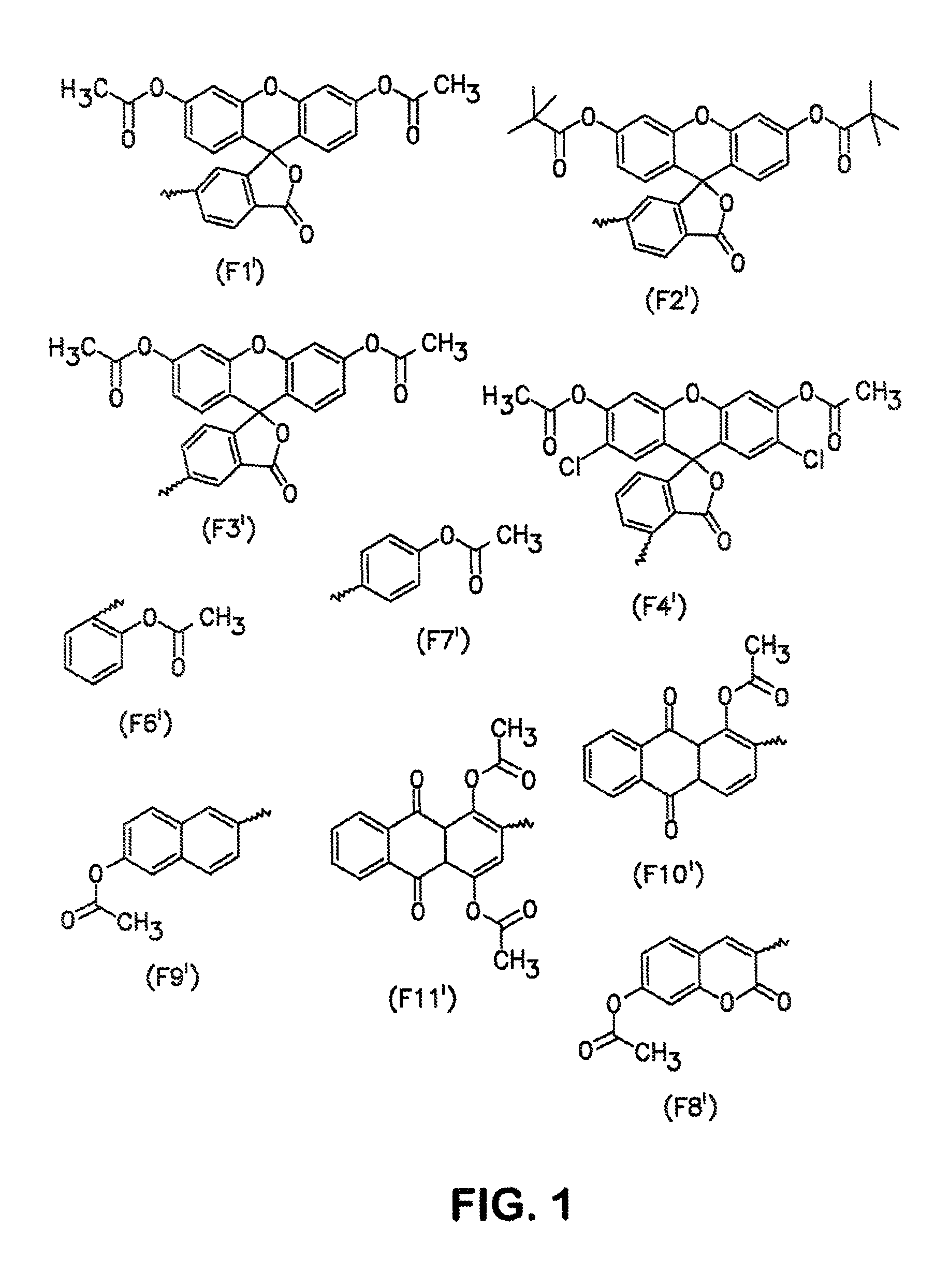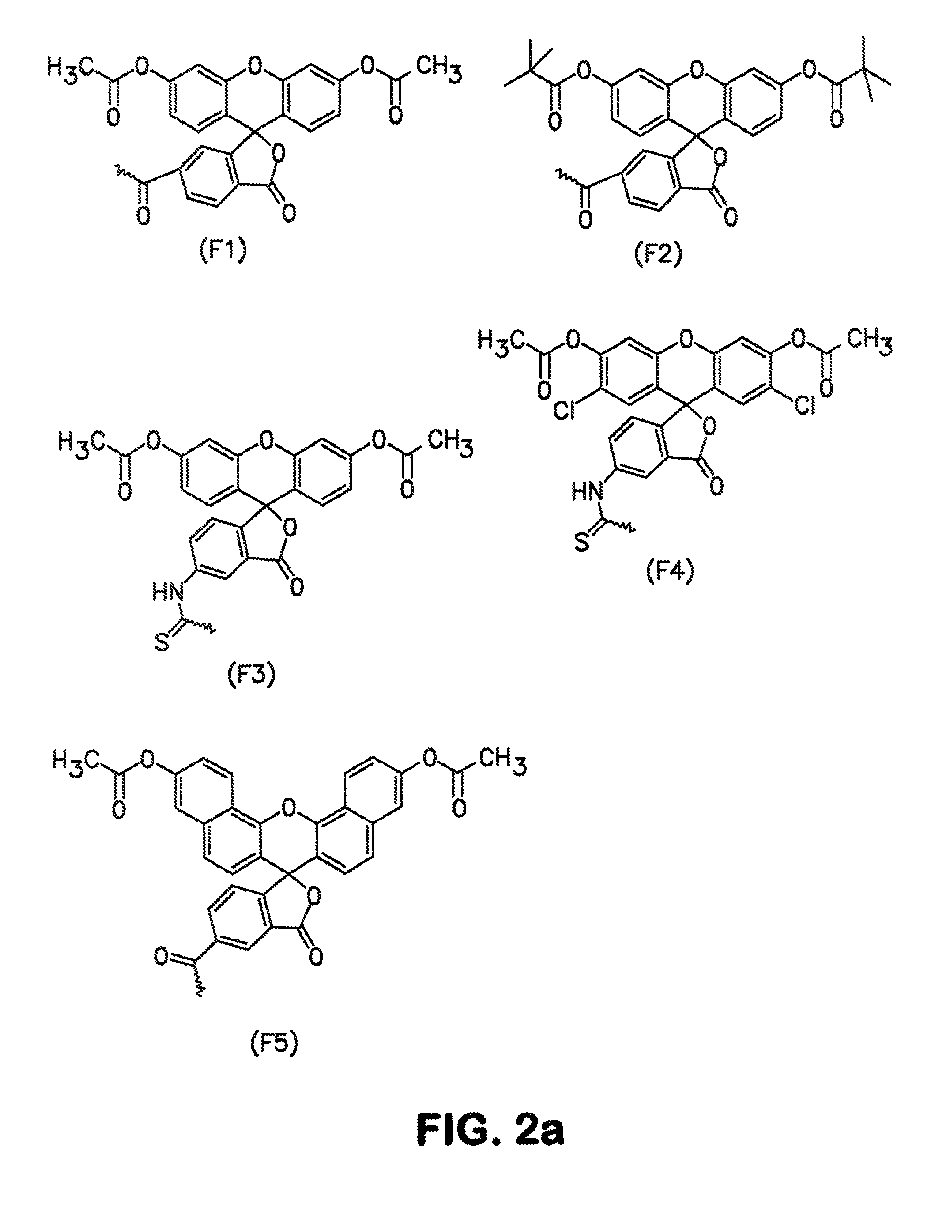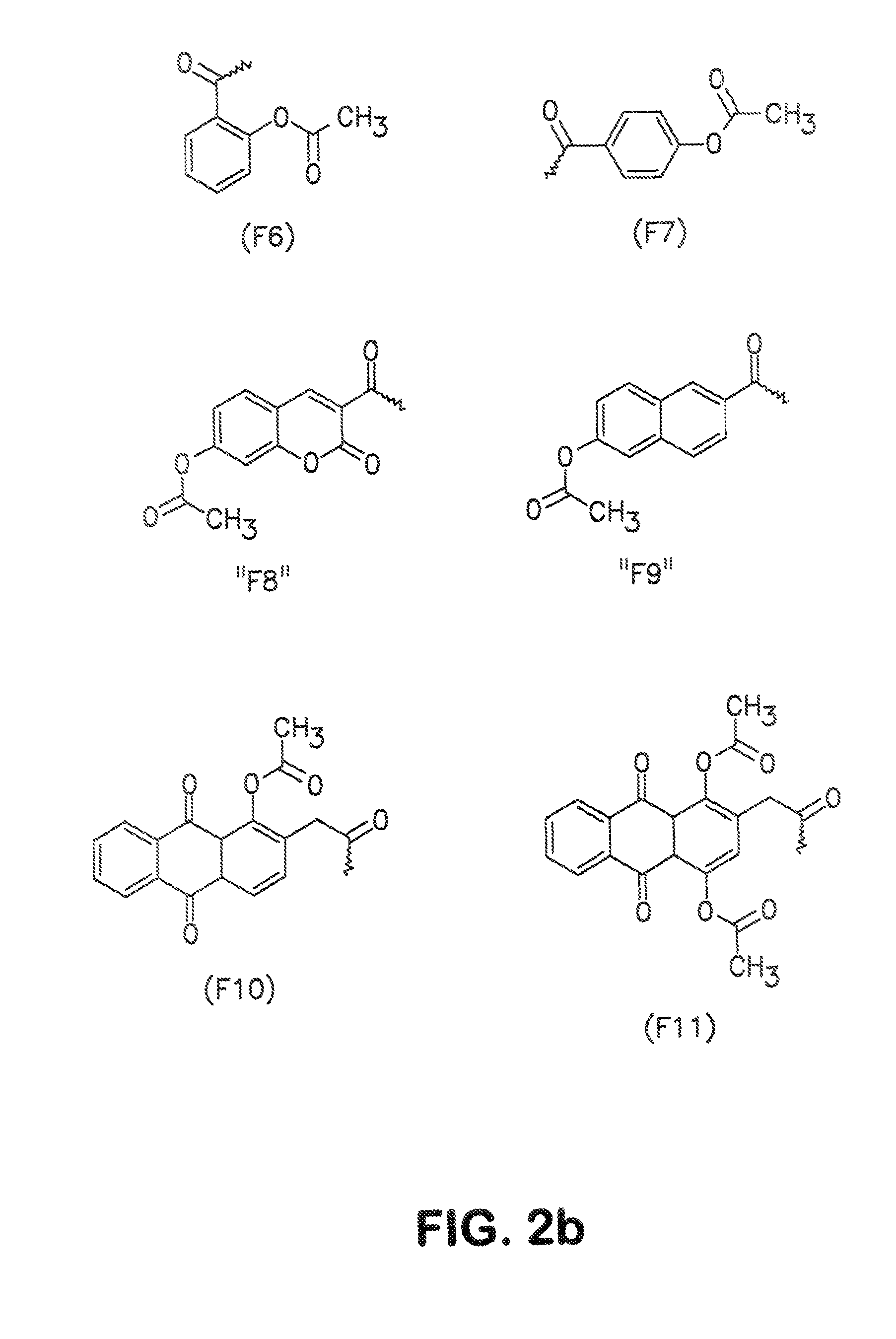Conjugates and processes for their preparation and their use for transporting molecules across biological membranes
a technology of biological membranes and conjugates, which is applied in the direction of antibody medical ingredients, peptide/protein ingredients, immunological disorders, etc., can solve the problems of unsatisfactory cellular uptake and unfavorable intracellular distribution, relatively inefficient process, and therapeutic utilization of molecules whose target is within the cell
- Summary
- Abstract
- Description
- Claims
- Application Information
AI Technical Summary
Benefits of technology
Problems solved by technology
Method used
Image
Examples
example 1
Oligonucleotide Synthesis
[0130]Oligonucleotides were synthesized on an automatic DNA synthesizer (Applied Biosystems Model 380B or 394) using the standard phosphoramidite chemistry and oxidation with iodine (F. Eckstein, Ed “Oligonucleotides and Analogues, A Practical Approach”, IRL Press, Oxford, 1991). For the introduction of phosphorothioate bridges in mixed phosphorothioates and phosphodiester oligonucleotides, oxidation was carried out using TETD (tetraethylthiuram disulfide) or Beaucage's reagent instead of iodine. After cleavage from the solid carrier (CPG or Tentagel) and removal of the protective groups with conc. NH3 at 55° C. over a period of 18 h, the oligonucleotides were initially purified by precipitation with butanol (Sawadogo, Van Dyke, Nucl. Acids Res. 19:674 (1991)). The oligonucleotides were purified by preparative gel electrophoresis or FPLC. The sodium salt was then obtained by precipitation from a 0.5 M NaCl solution using 2.5 parts by volume of ethanol.
[0131]...
example 2
Introduction of a 5′-Amino-Linker into an Oligonucleotide
[0133]The oligonucleotide was synthesized as described in Example 1. After coupling of the last nucleotide, the dimethoxytrityl group at the 5′-end was cleaved off. The free hydroxyl group was reacted with the commercially available 5′-amino-modifier C6 (from Eurogentic, Seraing, Belgium) under tetrazole catalysis and oxidized with iodine water. The oligonucleotide was then cleaved off from the carrier by treatment with conc. ammonia at 50° C. overnight, and all base-labile protective groups at the internucleoside groups and the amino functions of the heterocyclic bases were cleaved off. In the last step, the monomethoxytrityl protective group was cleaved off by treatment with 80% strength acetic acid at ambient temperature for 3 hours. The resulting oligonucleotide was analyzed as described in Example 1.
example 3
Conjugation of the Amino-Linker Oligonucleotide with FDA Isothiocyanate
[0134]10 OD (260) units of the 5′-amino-linker oligonucleotide from Example 2 were dissolved in 16 μl of 0.2 M triethylammonium bicarbonate (TBK) buffer and admixed with 125 μl of dimethylformamide (DMF). 1.5 mg of FDA isothiocyanate was added to this mixture, and the mixture was then shaken for 3 hours under exclusion of light. The result of the reaction was checked by HPLC. 2 μl of conc. acetic acid was then added, and the mixture was concentrated under reduced pressure. The product was then purified by precipitation with butanol. The correct molecular weight was determined by ESI mass spectroscopy. To avoid hydrolysis of the aromatic ester, the samples were always kept at a pH below 7.
PUM
| Property | Measurement | Unit |
|---|---|---|
| molecular weight | aaaaa | aaaaa |
| molecular weight | aaaaa | aaaaa |
| molecular weight | aaaaa | aaaaa |
Abstract
Description
Claims
Application Information
 Login to View More
Login to View More - R&D
- Intellectual Property
- Life Sciences
- Materials
- Tech Scout
- Unparalleled Data Quality
- Higher Quality Content
- 60% Fewer Hallucinations
Browse by: Latest US Patents, China's latest patents, Technical Efficacy Thesaurus, Application Domain, Technology Topic, Popular Technical Reports.
© 2025 PatSnap. All rights reserved.Legal|Privacy policy|Modern Slavery Act Transparency Statement|Sitemap|About US| Contact US: help@patsnap.com



